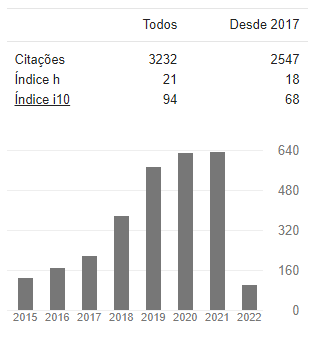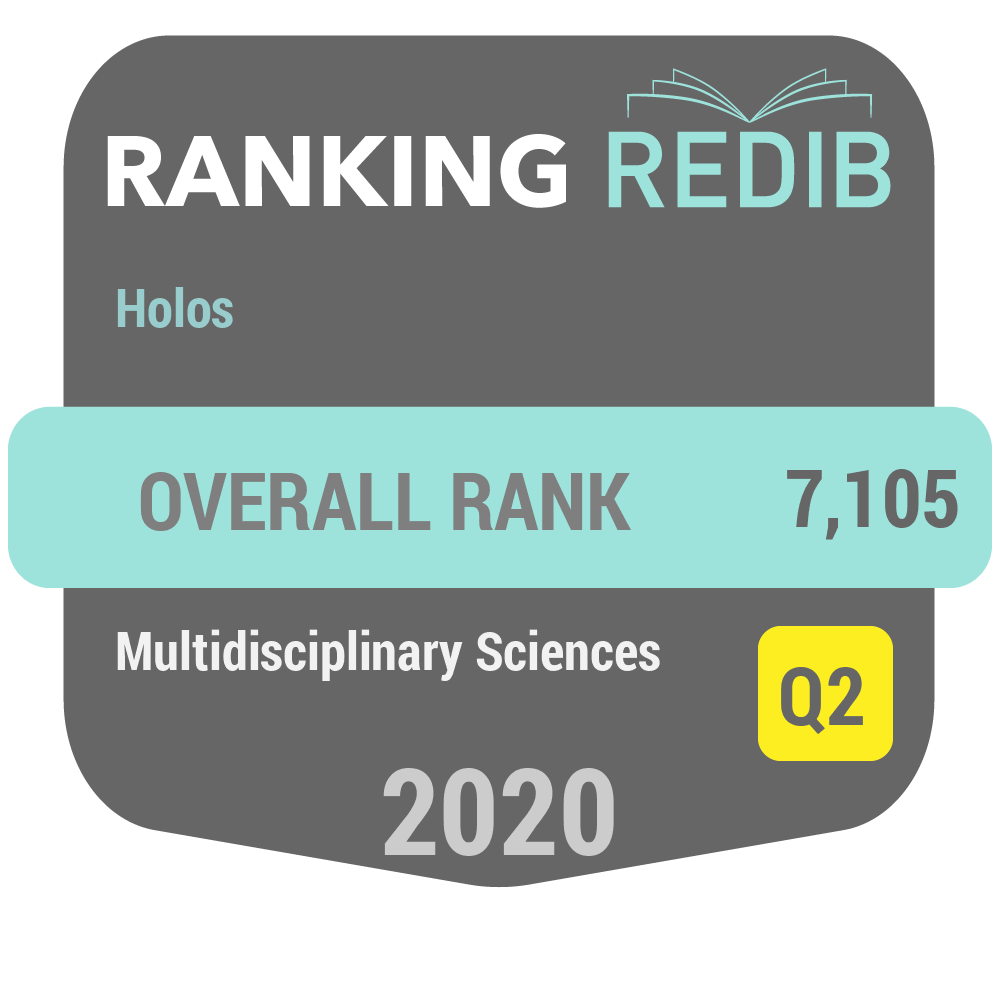EVENTUAL VOLUNTARY MOTIVATION IN SPORTS IN YOUTH SCHOOL GAMES IN BRAZIL
DOI:
https://doi.org/10.15628/holos.2019.7411Palavras-chave:
Motivational factors. Eventual volunteer. Sporting. Youth gamesResumo
This article aims to identify motivational factors in possible volunteers who are involved in sporting events here in Brazil. The empirical data was collected based on the theoretical model of Bang and Chelladurai (2009) that began the development of the theoretical basis in the Olympic Games of Athens 2004. One quantitative research method was used by applying 167 question forms filled out by volunteers involved in the Youth Games. The research showed that the main motivational factors for sports in Paraíba are related to the following variables, in this order: expression of values, love of sports and interpersonal contacts. It was observed that the motivational, extrinsic variable was less relevant for the volunteers.Downloads
Referências
ANHEIER, H. K. E SALAMON, L. M. (1999). “Volunteering in cross-national perspective: Initial comparation”. Law and contemporary problems, 62(4): 43-66.
ANNAN, C. SPORT CONGRESS. Congresso Internacional Voluntariado. Laussane, p. 4, 2001.
AÑÒ, V. The importance of volunteering in a great event: The program of Almería 2005. Actas Del Congresso Internacional Andalucia Tierra Del Desporte. Sevilha, v. 2, Ministry of Tourism and Sports, 2003.
BACELAR, S.M. (1999). Sampling in the social sciences - theoretical-practical class report. Porto, Portugal.
BANG, H. & CHELLADURAI, P. (2009). Development and validation of the volunteer motivations scale for international sporting events (VMS-ISE). International Journal of Sport Management, 6, 332-350.
BANG, H., & ROSS, S. (2009). Volunteer motivation and satisfaction. Journal of venue and Event Management, 1, 61-77.
BARBETTA, P.A. (2004). Statistics Applied to Social Sciences, 5. ed. Florianópolis: Publisher of UFSC. BARELI, P; LIMA, A. J. F. S. The social importance in the development of voluntary work. Management sciences journal: v. 14, n. 20, year 2010.
BONJEAN, CHARLES M., WILLIAM T. MARKHAM, and PATRICK O. MACKEN, (1994). “Measuring Self-Expression in Volunteer Organizations: A Theory-Based Questionnaire.” Journal of Applied Behavioral Science, 30 (4), 487-515.
BREUER, C. and WICKER, P. (2011). “Situation und entwicklung des freiwilligen engagements und ehrenamts in sportverein ” In: Breuer, C. (Org.) sportenwicklungsbericht 2009/2010 – Analysezur situation der sportvereine in Deuschland, sportveilogstraub, koln, p. 91-111.
BRUNO, B. FIORILLO, D. (2012). Why without pay? Intrinsic motivation in the unpaid labour supply. Journal of Socio-Economics 41: 659-669.
CNAAN, R.A.; CASCIO, T. Performance and commitement issues in managment of volunteers in human service organizations, journal of social service research, vol. 24, nº 314, pp. 1-37, 1998.
CAVALCANTE, C.E. motivation in volunteer work. expectations and motives in the pastoral care of children. PhD thesis, Graduate Program in Administration, Federal University of Rio Grande do Norte, Natal, 2012.
COI (2016). Disponível em: < https://editorolimpico.wordpress.com/2015/06/28/a-evolucao-dos-voluntariados-olimpicos-e-o-conceito/, acessado em 10/11/2016.
DOHERTY, A. (2005). A profile of community sport volunteers/volunteer management in community sport clubs. Toronto: parks and recreation Ontario/ sport alliance of Ontario.
FARRELL, J. M., JOHNSTON, M. E., & TWYNAM, D. G. (1998).Volunteer motivation, satisfaction, and management at an elite sporting competition. Jornal of Sport Management, 12, 288-300.
FIFA (2014). Disponível em: <http://www.brasil.gov.br/esporte/2012/09/programa-de-voluntarios-da-copa-2014-recebeu-mais-de-130-mil-inscricoes >, acessado em 10/11/2016.
FILO K., GROZA MD, Fairley S. The role of belief in making a difference inenhancing attachment to a charity sport event. J Nonprofit Public SectorMark 2012, 24 (2): 123-140.
GRAVILOV, G. (2012). Managing sport event volunteers: London 2012 Olympic Games Marers.
HALLMANN, K.; HARMS, G. (2012). “Determinants of volunteer motivation and their impact on future voluntary engagement: A comparison of volunteer’s motivation at sport events in equestrian and handball.” International Journal of Event and Festival Management, v. 3, iss 3, p. 272-291.
JOHNSTON, M., E., TWYNAM, D. G., & FARRELL, J. M. (1998). Motivation and satisfaction of event volunteers for a major youth organization . Leisure/Loisir, 24 (1-2), 161-177.
KOUTROU, NIKI (2014). Measuring Olympic Volunteers’ Motivations. Intersections and Intersectionalities in Olympic and Paralympic Studies, p. 55-61.
LATHSM, G.P., Pinder, C.C. Work Motivation Teory and research at the dawn of the twenty-first century. Annual review of psychology, 56, 485-516, 2005.
MACDUFF, NANCY (1991). Episodic Volunteering: Building the Short-Term Volunteer Program. WallaWalla, WA: MBA Publishing.
MORAGAS, M. Evolution of the Olympic Volunteers in the Olympic Games. In: MC ALOON, John. Volunteers, Global Society and the Olympic Moviment. Simpósio Internacional. Laussane, 2001.
PALASSI, M. P., & VERVLOET, A. M. P. (2011). Elections, syndicates and subjectivity: reflections on the production of subjective meanings from voluntary participation in the voting process. Psychology and Society, 23 (2), 312-324.
PAULA, E. DE. Good success. Interpersonal relations and quality of life at work. Rio de Janeiro: Quality Mark Ed., 2002.
Pereira, H.A; Cavalcante, C. E. Gold medal! Study on motivation in an eventual volunteer work in the Olympic Games in Rio de Janeiro. Organizations in context, São Bernardo do Campo, ISSNe 1982-8756 • Vol. 14, n. 28, jul-dec. 2018.
PEREIRA, P. A. P. Discussões conceituais sobre política social como política pública e direito de cidadania. In: Política Social no Capitalismo: Tendências Contemporâneas. São Paulo: Cortez, 2008.
PIMENTEL GOMES, F. Curso de Estatística Experimental, 14. ed. Piracicaba Desgapari, 200, 477p.
BRAZILIAN MAGAZINE (2015). Available at: <http://www.ebc.com.br/cidadania/2015/09/emprego-saiba-como-o-travel-voluntario-pode-valorizar-o-e-curriculo>, accessed on 08/03 / 2017
RUBIN, A., & THORELLI, I. M. (1984). Egoistic motives and longevity of participation by service volunteers. Journal of Applied Behavioral Science, 20 (3), 223-235.
STYERS, D. (2004).Volunteering for success. Australian Journal on Volunteering, 9 (2), 84-86.
TADINI, R. F. Volunteering in Special Sport Events in Brazil: An Analysis of Volunteer Training Promoted by the Brazilian Olympic Committee. XXX Brazilian Congress of Communication Sciences - Santos - August 29 to September 2, 2007.
TAMAYO. A. PASCHOAL, T. Impact of labor values and family interference: work on occupational stress. Psic .: content. and pesq., n.21, v.2, may 2005
TAYLOR, P., NICHOLS, G., HOLMES, K., JAMES, M., GRATTON, C., GARRETT, R., KOKOLAKAKIS, T., MULDER, C., & KING, L. (2003). Sports volunteering in England. London: Sport England.
VAN SCHIE S., GUNTERT ST, OOSTLANDER J. et al. How the organizational context impacts volunteers: a differentiated perspective on self-determined motivation. Int Soc Third Sector Res 2014.
WALTON, R. Quality of working life: what is it? Slow Management Review. USA, v. 15, n. 1, p. 11-21, 1973.
WANG, C. L., & WU, X. (2014). Volunteers’ motivation, satisfaction, and management in large-scale events: an empirical test from the 2010 shanghai world expo. voluntas, 25, 754-771.









































